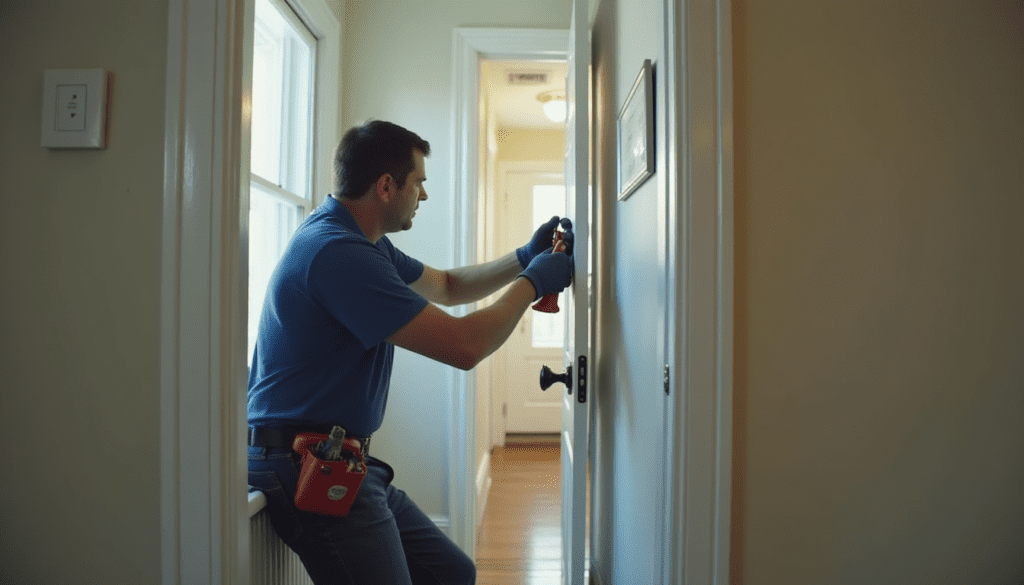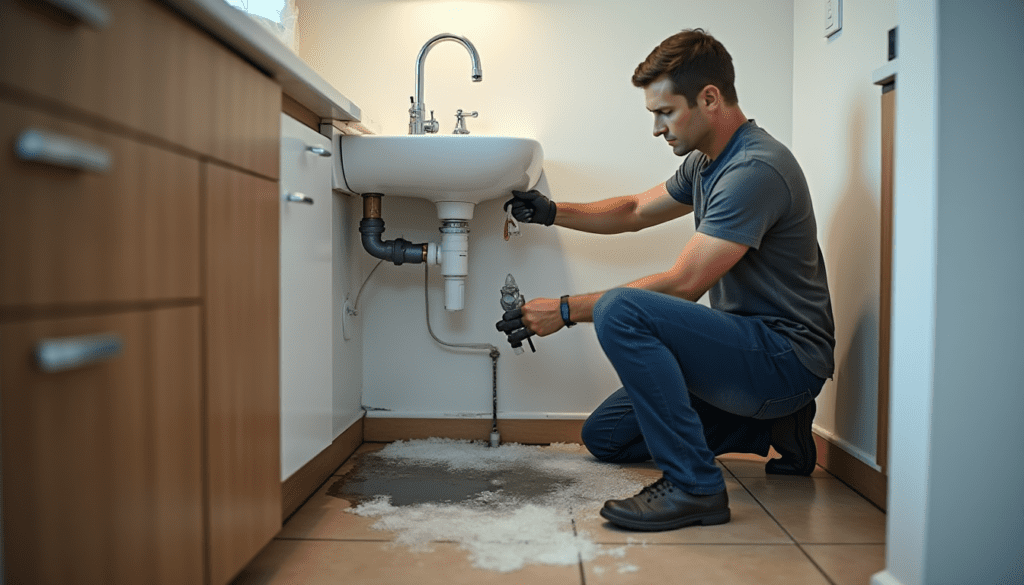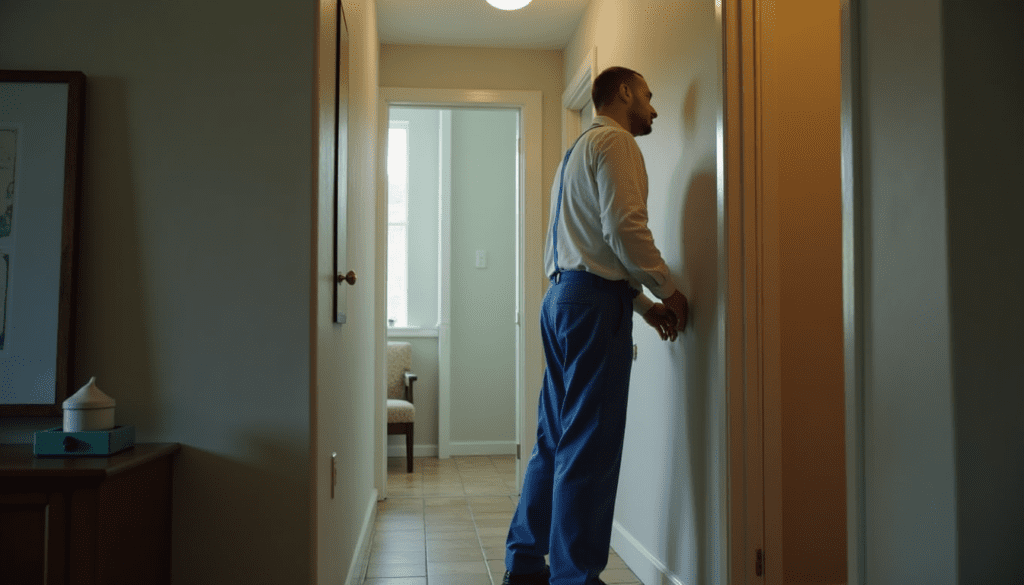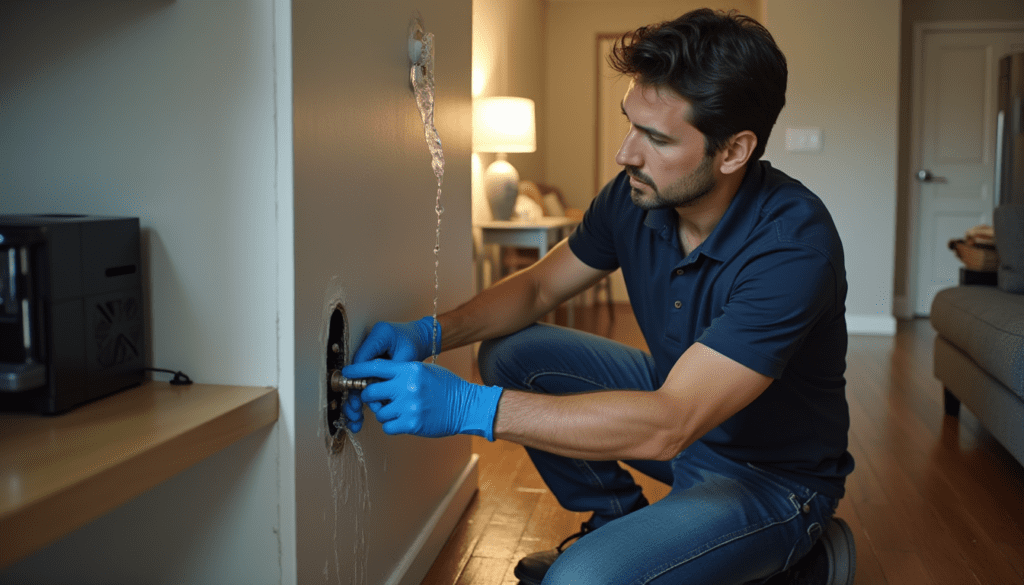Whether you’re a landlord managing properties in Plainfield, New Jersey or a tenant trying to understand your rights, the eviction process timeline matters. Knowing the steps, the timing and the legal framework in the state — especially for places like Plainfield in Union County — gives you an edge. In this article, we’ll walk through the timeline for an eviction in New Jersey, highlight how things play out locally, and provide actionable advice for staying on top of it.
Why Understanding the Timeline Matters
When you understand the timeline of an eviction — from the initial notice to the final removal — you’re better prepared to act. For landlords in Plainfield, missing a required notice or mishandling the court filing can delay recovery of the unit, increase costs and create legal exposure. For tenants, knowing how long each phase takes helps you evaluate whether there may be a defense, an opportunity to pay arrears or negotiate, or a legitimate timeframe to plan your move.
Moreover, in New Jersey the process is structured and must comply with state law — for example the official timeline set out by the New Jersey Department of Community Affairs (DCA) breaks the eviction process into clearly defined phases: notice, court filing, hearing, judgment and removal. :contentReference[oaicite:1]{index=1}
For both landlords and tenants, failing to follow the correct process can lead to costly delays. For example, if a landlord files the eviction too early or serves the wrong notice, the court may dismiss the case or schedule a new hearing. From a tenant’s perspective, being aware of the timeline means you can ensure your rights are protected and you don’t vacate prematurely or without understanding your options.
Overview: Eviction Law Framework in New Jersey
The eviction process in New Jersey is governed by state law and administered through the court system — in most instances, the New Jersey Court System (NJ Courts), particularly the Special Civil Part of the Superior Court in the county where the rental is located. :contentReference[oaicite:3]{index=3}
Here are the key legal pieces to keep in mind:
- Grounds for eviction: Landlords must have a valid reason — nonpayment of rent, lease violation, illegal activity, hold-over tenancy etc. :contentReference[oaicite:4]{index=4}
- Notice requirements: Depending on the reason for eviction, a particular notice must be given such as a “Notice to Quit” or other type of written notice. :contentReference[oaicite:5]{index=5}
- Court involvement: A landlord cannot forcibly remove a tenant without first obtaining a judgment for possession through the court. Self-help evictions (changing locks, shutting off utilities) are illegal. :contentReference[oaicite:6]{index=6}
- Timeline viability: While the law sets out phases and minimum wait periods, actual scheduling depends on court backlog, tenant responses, local county practice. For example, NJ Courts note that after judgment a tenant has three business days to move out unless the court grants a stay. :contentReference[oaicite:7]{index=7}
In Plainfield — located in Union County — the process follows the same state law framework, but local court scheduling, service of process timing, and the workload of the local Special Civil Part can affect actual durations.
Step-by-Step Timeline for Eviction in Plainfield NJ
This section walks you through the typical phases of the eviction process in Plainfield, NJ — from the initial notice phase through to removal of the tenant. While actual durations will vary, the following gives you a realistic roadmap.
Notice Phase (Notice to Cease / Notice to Quit)
The first formal step a landlord must take is serving the appropriate notice to the tenant, based on the reason for eviction. For nonpayment of rent, the landlord may issue a notice to pay or quit; for lease violations or holdover tenancies there may be a “Notice to Quit” or other notice. :contentReference[oaicite:8]{index=8}
In practice for Plainfield/Union County: you’ll serve the notice and allow the tenant the required time. If they don’t comply, you then move to the next phase. The notice period can vary — immediate for some nonpayment cases, up to 30 days or more for other kinds of violations. :contentReference[oaicite:9]{index=9}
Filing the Eviction Complaint
If the tenant fails to comply with the notice, the landlord files an eviction complaint in the Special Civil Part in the county (here, Union County). The complaint typically must be filed once the notice period expires. Supporting documentation (lease, rent ledger, copies of notices) is required. :contentReference[oaicite:10]{index=10}
Once the complaint is filed, the court issues a summons and schedule a hearing. Service of the summons on the tenant must follow. In New Jersey, the hearing is often scheduled within 10 to 30 days after filing. :contentReference[oaicite:11]{index=11}
Service of Summons and Tenant Response / Court Hearing
After filing, the landlord must ensure the complaint and summons are properly served on the tenant (by special civil part officer, sheriff, or other authorized means) consistent with NJ Court rules. :contentReference[oaicite:12]{index=12}
The tenant may respond or appear at the hearing; in many cases if the tenant fails to appear, the landlord may win by default. The court hearing will consider evidence, landlord’s claims, tenant defenses. In Plainfield, you should plan for about 10-30 days from filing to hearing, though delays may occur. :contentReference[oaicite:13]{index=13}
Judgment for Possession
If the landlord is successful at the hearing, the court enters a judgment for possession. At this point the landlord has legal right to recover the unit. However, obtaining judgment does not instantly mean eviction occurs. The tenant still has rights under New Jersey law. For example, the tenant has up to three business days after judgment to pay the rent and approved costs and avoid eviction. :contentReference[oaicite:14]{index=14}
In Plainfield, once judgment is entered the landlord must apply for a warrant for removal (or the court clerk issues it) and schedule removal by an officer. The issuance of the warrant must be at least three business days after judgment, as per NJ statute. :contentReference[oaicite:15]{index=15}
Warrant for Removal & Actual Removal
After judgment and after the three-business-day window, the landlord or court may request a warrant for removal — authorizing a court officer to physically remove the tenant and return possession to the landlord. :contentReference[oaicite:16]{index=16}
Typically in New Jersey the actual removal occurs within 3-10 days after the warrant is issued, but this can stretch if the tenant appeals, requests additional time (orderly removal or hardship stay) or if the court or officer scheduling is backed up. :contentReference[oaicite:17]{index=17}
For property managers in Plainfield, it’s safe to plan for a minimum of 3-4 weeks from notice to removal if things go smoothly, and longer (possibly 6-8 weeks or more) if the tenant contests, delays, or local court backlog is heavy.
By understanding each phase and the logical sequence — notice → filing → service → hearing → judgment → warrant → removal — you’re better equipped to chart a realistic timeline for your eviction matter.
County or Local Variations in Plainfield and Union County
While New Jersey’s landlord-tenant law governs evictions statewide, there are small variations in how quickly cases move depending on the county. In Plainfield — which is part of Union County — the local Special Civil Part court handles eviction complaints. Court volume, officer availability, and local scheduling practices can influence the overall eviction timeline. ([njcourts.gov](https://www.njcourts.gov/self-help/landlord-tenant?utm_source=chatgpt.com))
Property managers in Plainfield report that court hearing dates are typically scheduled 2 – 4 weeks after filing, with additional time for service. If you’re operating in multiple counties (for example, Middlesex, Essex, or Hudson), you might find slight differences in scheduling speed, officer availability, and paperwork turnaround. Having a property manager familiar with the Union County system can help minimize mistakes that lead to unnecessary delays.
In addition, some municipalities in Union County offer mediation services that can delay but also sometimes resolve cases before a formal judgment. Understanding these nuances ensures that landlords and tenants in Plainfield can better anticipate realistic timeframes and make informed decisions about whether to pursue or contest eviction.
Eviction Timelines by Other States (for Comparison)
Comparing New Jersey’s eviction timeline to other nearby states helps landlords who manage multi-state portfolios. Each state’s process is unique — and knowing these differences provides perspective.
- New York: Often longer and more tenant-friendly, taking 2 – 3 months on average due to additional notice periods and court backlogs. ([findlaw.com](https://www.findlaw.com/realestate/landlord-tenant-law/how-long-does-the-eviction-process-take.html?utm_source=chatgpt.com))
- Pennsylvania: Typically 3 – 6 weeks depending on county. Some cases can move faster because the magistrate courts are smaller. ([doorloop.com](https://www.doorloop.com/laws/pennsylvania-eviction-process?utm_source=chatgpt.com))
- Connecticut: Similar to NJ but with a built-in 3-day notice requirement before filing, followed by 2 – 3 weeks to hearing. ([hemlane.com](https://hemlane.com/resources/connecticut-eviction-laws?utm_source=chatgpt.com))
New Jersey’s process sits somewhere in the middle — structured, clear, but occasionally delayed due to the state’s detailed notice requirements and limited court resources. Landlords and property managers should build this variability into their expectations. A Plainfield landlord might experience a full eviction cycle in roughly 6 – 8 weeks, while an out-of-state property owner may see faster or slower processes elsewhere.
Best Practices to Keep the Timeline Short and Legal
For landlords in Plainfield, minimizing delays during the eviction process starts with organization and compliance. Here are key best practices to keep the timeline both short and fully legal:
- Serve the right notice type the first time. Whether a Notice to Quit or Notice to Cease, ensure that you’re referencing the proper violation and giving the correct number of days required under NJ law. Incorrect notices are one of the most common reasons judges dismiss cases. ([apmhelp.com](https://www.apmhelp.com/blog/eviction-process-new-jersey?utm_source=chatgpt.com))
- Keep complete documentation. Save every notice, delivery confirmation, rent ledger, and correspondence. Courts in Union County value clear documentation. ([curbelolaw.com](https://curbelolaw.com/eviction-process-in-new-jersey/?utm_source=chatgpt.com))
- Use reliable service methods. A court officer, sheriff, or certified mail provides proof of delivery that prevents challenges later.
- Communicate clearly with tenants. Misunderstandings sometimes extend cases. A polite written notice explaining why eviction is being filed can reduce disputes.
- Work with experienced property managers or legal counsel. Companies familiar with the Plainfield area often have systems to track deadlines and court filings. ([innago.com](https://innago.com/new-jersey-eviction-process/?utm_source=chatgpt.com))
Following these steps not only keeps your eviction timeline within the 4-8 week average but also protects you against costly appeals or dismissals.
Tenant Rights and How They Can Affect the Timeline
Tenants in New Jersey enjoy robust legal protections that can affect how long an eviction takes. Understanding these rights helps landlords plan realistically and tenants assert themselves lawfully. According to DoorLoop’s New Jersey Eviction Guide, the following rights are particularly relevant:
- Right to notice: Tenants must receive proper written notice before a complaint is filed. Skipping or shortening this period can invalidate the eviction.
- Right to a hearing: Tenants have the right to appear in court, present defenses (like rent already paid or landlord’s non-compliance with the lease), and request adjournments for valid reasons.
- Right to pay and stay: In some cases — especially nonpayment of rent — tenants may pay rent and legal costs even after judgment to avoid immediate removal. ([njcourts.gov](https://www.njcourts.gov/self-help/landlord-tenant?utm_source=chatgpt.com))
- Right to appeal or request an “orderly removal.” This allows more time to move out without abrupt displacement.
Each of these rights can extend the timeline, but they’re integral to New Jersey’s balance between landlord property rights and tenant housing stability. In Plainfield, tenants who communicate early and comply with court directions often find that they can negotiate payment arrangements or extended deadlines instead of facing sudden eviction.
Costs Associated with the Eviction Process in New Jersey
Time isn’t the only consideration — cost is also a significant factor. While every eviction case differs, the following are typical expenses landlords encounter:
- Filing fees: Special Civil Part filing fees typically range from $50 – $75 depending on claim type. ([njcourts.gov](https://www.njcourts.gov/self-help/landlord-tenant?utm_source=chatgpt.com))
- Service and officer fees: Expect another $30 – $50 for service of summons and later for warrant of removal.
- Attorney or property management costs: These vary widely but can run $300 – $1,000 per case if you hire professional representation.
- Indirect costs: Lost rent, vacancy turnover, cleaning, and repairs after a difficult move-out add to total losses. ([innago.com](https://innago.com/new-jersey-eviction-process/?utm_source=chatgpt.com))
For Plainfield landlords, budgeting at least $400 – $600 in direct costs per case (excluding lost rent) is a practical baseline. Factoring these into your annual property budget helps you plan ahead and maintain cash flow even if a tenant eviction becomes necessary.
Common Mistakes That Extend the Timeline
Even experienced landlords can unintentionally prolong an eviction by overlooking a few crucial details. In Plainfield, where court backlogs can already make hearings slower, avoiding common mistakes is vital to keeping the process efficient and compliant.
- Improper or missing notice. Serving the wrong type of notice — or skipping it altogether — can cause judges to dismiss your case. A “Notice to Quit” must contain the exact statutory reason and adhere to New Jersey’s required timing. ([lawdistrict.com](https://www.lawdistrict.com/articles/eviction-process-new-jersey?utm_source=chatgpt.com))
- Incorrect filing venue. Filing the case in the wrong county or court division (for instance, filing in Small Claims instead of Special Civil Part) leads to delays or outright rejection. For Plainfield properties, filings go through the Union County Superior Court, Special Civil Part.
- Lack of documentation. Without solid proof—like rent ledgers, signed leases, and copies of notices—the court may give the tenant the benefit of the doubt or postpone judgment.
- Self-help eviction attempts. Changing locks, removing tenant property, or shutting off utilities before judgment is issued is illegal in New Jersey and can lead to fines or even lawsuits. ([hemlane.com](https://hemlane.com/resources/new-jersey-eviction-laws?utm_source=chatgpt.com))
- Poor communication. Unclear or overly aggressive communication with tenants often triggers disputes and countersuits. Maintaining professionalism ensures smoother proceedings.
By focusing on accuracy, legal compliance, and proper procedure, landlords in Plainfield can prevent unnecessary case re-filings or dismissals — both of which can add weeks to the timeline.
Legislative or Court Rule Changes Affecting Timelines
Eviction timelines evolve as New Jersey updates its housing laws. Staying informed about these adjustments is essential for both landlords and tenants in Plainfield. As of 2025, several state-level changes have influenced how quickly cases move through court.
According to Hemlane’s New Jersey Eviction Law Update, recent modifications in administrative procedures have allowed some counties to accept electronic filings and digital summonses. This can slightly shorten processing time for landlords who use the online eCourts platform. However, in-person hearings remain mandatory in most Union County eviction cases, meaning physical attendance is still required.
Another update to monitor is the expansion of tenant hardship stays, which allow renters to request extra time to relocate after judgment. Courts are now required to assess each request case-by-case, which sometimes extends the post-judgment phase beyond the typical three business days. ([njcourts.gov](https://www.njcourts.gov/self-help/landlord-tenant?utm_source=chatgpt.com))
Landlords should review updates periodically on the official NJ Courts site and maintain communication with local property management professionals to ensure filings align with the most recent rules. This proactive step helps avoid administrative rejections and delays caused by outdated forms or procedures.
Frequently Asked Questions
How long does the eviction process take in Plainfield, New Jersey?
In most Plainfield cases, an uncontested eviction takes about 4–8 weeks from the first notice to final removal. If the tenant contests or requests a stay, it may extend to 10–12 weeks. Court scheduling and local backlog are major factors.
What notice must a landlord give before filing eviction in NJ?
The type of notice depends on the reason for eviction. Nonpayment of rent can often proceed without a lengthy notice, while other grounds (like lease violation or property damage) typically require a “Notice to Quit” or “Notice to Cease” with 30 days’ notice. ([evictionguide.dca.nj.gov](https://evictionguide.dca.nj.gov/en/timeline?utm_source=chatgpt.com))
Can a tenant stop an eviction after judgment in New Jersey?
Yes. A tenant may pay all outstanding rent plus court-approved costs within three business days after judgment, or request a hardship stay or orderly removal. Courts in Union County often grant short extensions when good cause is shown.
What happens after the court issues a warrant for removal?
Once a warrant is issued, a court officer schedules the lockout and returns possession to the landlord. The tenant typically has 3–10 days to vacate. Removing belongings must follow lawful procedures, with no self-help actions permitted.
Are there different timelines for eviction based on the reason in Plainfield NJ?
Yes. Nonpayment cases move faster, while violations or holdover tenancies often require longer notice periods and evidence collection. Each cause has a distinct legal path defined under NJSA 2A:18-61.1.
What fees and costs are involved in the eviction process?
Filing and service fees range from $50 to $125 combined. If a landlord hires an attorney, total costs can reach $500–$1,000. Additional costs include lost rent and turnover expenses. ([innago.com](https://innago.com/new-jersey-eviction-process/?utm_source=chatgpt.com))
Does the eviction timeline vary by county within New Jersey?
Yes. Counties with higher population densities — like Union, Essex, and Hudson — often have longer wait times for hearings. Rural counties may move cases through court faster.
What rights do tenants have during the eviction process in Plainfield NJ?
Tenants have the right to proper notice, a fair hearing, and to pay arrears before removal. They may also appeal judgments or request additional time for relocation, depending on the case.
Next Steps for Landlords or Tenants in Plainfield
Whether you’re a landlord facing a difficult tenant or a renter unsure about your rights, understanding the eviction process timeline empowers you to make better decisions. In Plainfield, staying organized, following every legal step, and communicating openly can reduce stress and save both time and money.
For landlords, consider working with a professional property management team like those at Rent Shield Property Management who specialize in New Jersey’s local regulations. They handle notices, filings, and court coordination — ensuring your eviction process remains compliant and efficient.
Tenants, on the other hand, should stay informed by reviewing official sources such as the NJ Courts Self-Help Center and contacting a legal aid office if they believe their rights are being violated.
If you’re ready to take action or need help navigating eviction procedures in Plainfield, reach out to our team today to schedule a consultation. We’ll guide you through each step — from notice to final resolution — ensuring you remain compliant and protected under New Jersey law.
Disclaimer
Disclaimer: This article is for informational purposes only and does not constitute legal advice. Eviction laws change frequently, and individual circumstances vary. Always consult with a qualified New Jersey attorney or local housing authority before taking any legal action regarding eviction or tenant disputes.






